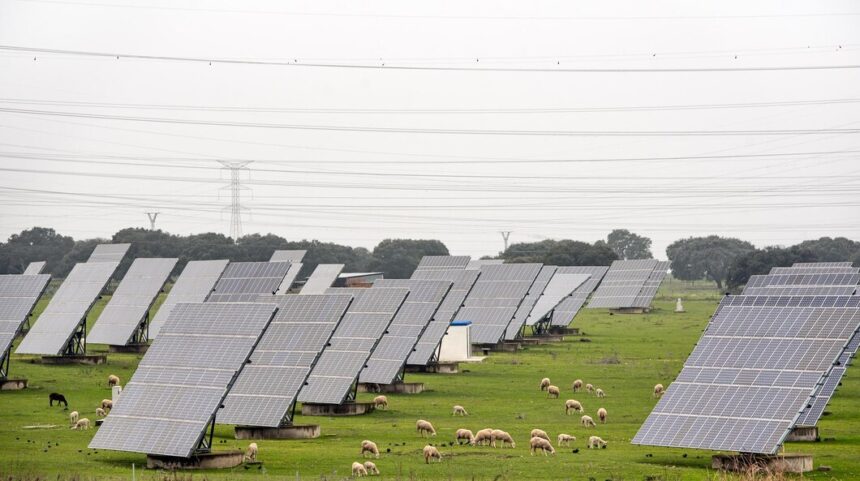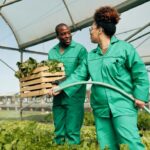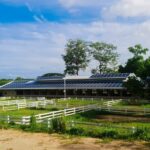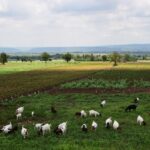Renewable energy integration is becoming increasingly important for South African farmers as they seek to reduce costs, increase sustainability, and mitigate environmental impact. Here are ten techniques that farmers in South Africa can adopt to harness the power of renewable energy:
- Solar Photovoltaic (PV) Systems: Installing solar PV panels on farm buildings, storage facilities, and open land can generate clean, renewable electricity to power farm operations. Solar PV systems can be grid-tied or off-grid, providing flexibility and resilience in energy supply.
- Wind Turbines: Farms situated in windy regions can harness wind energy through the installation of wind turbines. Wind power can complement solar energy generation, providing a reliable source of electricity, especially during periods of low solar irradiation.
- Biogas Digesters: Livestock farms can utilize biogas digesters to convert organic waste, such as animal manure and crop residues, into biogas for heating, cooking, and electricity generation. Biogas production not only reduces greenhouse gas emissions but also provides a renewable energy source and nutrient-rich biofertilizer.
- Hydropower Systems: Farms with access to flowing water sources, such as rivers or streams, can explore small-scale hydropower systems to generate electricity. Micro-hydro turbines can be installed to harness the kinetic energy of moving water and convert it into electrical power.
- Biomass Energy: Biomass resources, such as wood chips, agricultural residues, and energy crops, can be utilized for heating, cooling, and electricity generation. Biomass boilers, stoves, and gasifiers offer flexible and renewable energy solutions for farm operations.
- Solar Water Pumping: Solar-powered water pumps can provide a reliable and sustainable solution for irrigation, livestock watering, and domestic water supply on farms. Solar pumps eliminate the need for grid electricity or diesel generators, reducing operating costs and environmental impact.
- Energy-Efficient Technologies: Implementing energy-efficient technologies and practices, such as LED lighting, variable frequency drives (VFDs), and energy management systems, can reduce energy consumption and optimize the use of renewable energy resources on farms.
- Energy Storage Systems: Integrating energy storage systems, such as batteries or pumped hydro storage, with renewable energy generation allows farmers to store excess energy for use during periods of high demand or low renewable resource availability.
- Smart Grid Solutions: Smart grid technologies enable farmers to monitor, control, and optimize energy usage and distribution across their operations. Advanced metering, demand response programs, and grid-interactive systems facilitate seamless integration of renewable energy with the existing electrical grid.
- Collaborative Energy Projects: Farmers can collaborate with neighboring farms, communities, or energy cooperatives to develop shared renewable energy projects. Collaborative initiatives, such as community solar farms or joint biogas facilities, offer economies of scale, shared infrastructure costs, and mutual benefits for all stakeholders involved.
By embracing these techniques for renewable energy integration, South African farmers can enhance their energy resilience, reduce dependence on fossil fuels, and contribute to the transition towards a more sustainable and environmentally friendly agricultural sector. With the right investments, policies, and support mechanisms in place, renewable energy has the potential to power the future of farming in South Africa.
Join 'Farmers Mag' WhatsApp Channel
Get the latest Farming news and tips delivered straight to your WhatsApp
CLICK HERE TO JOIN






